£12.99
Justinian’s Empire: Triumph and Tragedy (The Fall of the Roman Empire)
IT WAS AN AGE OF GLORY…
…BUT ALL THAT GLITTERS IS NOT GOLD.
‘A riveting account of Justinian’s reign that challenges traditional consensus’ Kirkus Reviews
The sixth-century AD witnessed a remarkable turn-around in the Roman Empire’s fortunes. Justinian’s general, Belisarius, recovered North Africa and Italy from the barbarians. An impressive new law code was inaugurated that would endure to this day. Astonishing building projects, like the iconic Hagia Sophia, rivalled the great monuments of Old Rome.
But rather than restoring Rome’s greatness did Justinian in fact pave the way for its collapse less than a century after his death? Drawing on the contemporary sources, especially those of the chronicler Procopius, Nick Holmes reveals a darker side to Justinian – a ruthless opportunist, whose costly conquests and misguided priorities drained the empire’s wealth and critically weakened its army.
This is the fourth volume in Nick Holmes’ series on the Fall of the Roman Empire. The first three books trace the empire’s story from the ‘crisis of the third century’, through its reinvention by Constantine as a Christian state, and then onto the fall of its western half. A fifth volume will tell of its rapid demise in the seventh century AD, when the first Islamic Caliphate became the new superpower of western Eurasia.
Praise for Nick Holmes’ Books
‘A talent for storytelling’ Kirkus Reviews
‘Clear, succinct and compelling’ AudioFile Magazine
‘Perhaps the best historical story-teller alive’ Amazon Reviewer
| Dimensions | 12.85 × 2.79 × 19.84 cm |
|---|---|
| Publisher | Puttenham Press Ltd (25 Nov. 2024) |
| Language | English |
| Paperback | 440 pages |
| ISBN-10 | 1739786564 |
| ISBN-13 | 978-1739786564 |
| Dimensions | 12.85 x 2.79 x 19.84 cm |
2 reviews for Justinian’s Empire: Triumph and Tragedy (The Fall of the Roman Empire)
Related products
Aspects of Roman History 31 BC-AD 117 (Aspects of Classical Civilization)
£34.77This new edition of Aspects of Roman History 31 BC- AD 117 provides an easily accessible guide to the history of the early Roman Empire. Taking the reader through the major political events of the crucial first 150 years of Roman imperial history, from the Empire’s foundation under Augustus to the height of its power under Trajan, the book examines the emperors and key events that shaped Rome’s institutions and political form. Blending social and economic history with political history, Richard Alston’s revised edition leads students through important issues, introducing sources, exploring techniques by which those sources might be read, and encouraging students to develop their historical judgement.
The book includes:
- chapters on each of the emperors in this period, exploring the successes and failures of each reign, and how these shaped the empire,
- sections on social and economic history, including the core issues of slavery, social mobility, economic development and change, gender relations, the rise of new religions, and cultural change in the Empire,
- an expanded timeframe, providing more information on the foundation of the imperial system under Augustus and the issues relating to Augustan Rome,
- a glossary and further reading section, broken down by chapter.
This expanded and revised edition of Aspects of Roman History, covering an additional 45 years of history from Actium to the death of Augustus, provides an invaluable introduction to Roman Imperial history, surveying the way in which the Roman Empire changed the world and offering critical perspectives on how we might understand that transformation. It is an important resource for any student of this crucial and formative period in Roman history.
Uncovering Celtic Mythology: A Beginner’s Guide Into The World Of Celtic Myths, Fairy Tales, Folklore, Warriors, Celtic Gods and Creatures (Ancient History Books)
£22.52In 58 BCE, when Julius Caesar – the famous Roman general – wrote a commentary on the Gallic wars, he described the “Celt” speaking people who lived in the area then known as the Gaul.
These people had their own culture, gods, and beliefs – called Celtic Mythology – which were very different from the Romans.
The influence of this mythology, however, was not limited to a small territory. This culture spread across Europe, especially to the western nations of Britain, Ireland, France, and Spain.
The legacy of Celts is still alive, and you may even have encountered these traces of Celtic culture:
- The languages spoken by modern-day Irish, Scottish, and Welsh people
- King Arthur and the Knights of the Round Table
- The legends and pop-culture depictions of the shrieking spirit of Banshee
- Conan the Barbarian, a very famous character appearing in films as well as comics
- Bran Stark, from Game of Thrones, who becomes the Three-eyed Raven
The above examples are just a handful of successors from the ancient Celtic culture, and the last two draw direct inspiration from Celtic mythology.
And there’s even more from where those came from…
In Uncovering Celtic Mythology, you will discover:
- A comprehensive, beginner-friendly guide to understanding the world of Celtic Mythology
- The origins and culture of the Celtic people that inhabited Western Europe since the Iron Age
- Symbolisms and Beliefs: explore creation myths, sacred trees, sacred festivals, and more!
- Irish and Welsh Mythologies (and how they continue the folkloric traditions of the Celts)
- The Great Cycles – relive the 4 great sagas that form the mythological history of Ireland’s Celtic people
- A curated collection of folktales that form an important part of Irish and Welsh mythologies
- 50+ character profiles – enjoy a lively cast of well known mythical heroes, gods, and goddesses
- Over 30 different creatures – legendary monsters and mythical beings – waiting for you
- How the Legend of King Arthur links with Celtic Mythology
And much more.
The Celtic culture, practices, beliefs, and myths are not just records of a bygone era… They are also examples of resilient traditions that continue to inspire mankind even in modern times.
If you want to explore the magical myths of Celtic Mythology – and have fun while doing it – then scroll up and click “Add to Cart” right now.
The Ancient Mysteries: A Sourcebook of Sacred Texts
£19.34Zeus and the other gods of shining Olympus were in reality divine only by popular consent. Over the course of time Olympian luster diminished in favor of religious experiences more immediate to the concerns of people living in an increasingly cosmopolitan ancient world. These experiences were provided by the mysteries, religions that flourished particularly during the Hellenistic period and were secretly practiced by groups of adherents who decided, through personal choice, to be initiated into the profound realities of one deity or another. Unlike the official state religions, in which people were expected to make an outward show of allegiance to the local gods, the mysteries emphasized an inwardness and privacy of worship within a closed band of initiates.
In this book, Marvin W. Meyer explores the sacrifices and prayers, the public celebrations and secret ceremonies, the theatrical performances and literary works, the gods and goddesses that were a part of the mystery religions of Greece in the seventh century B.C. to the Judaism and Christianity of the Roman world of the seventh century A.D.
Rome and Attila: Rome’s Greatest Enemy (The Fall of the Roman Empire)
£11.99In the first major work written about Attila in decades, Nick Holmes rewrites the story of Attila and Rome. Contrary to his brutal legend, Attila was a complex and captivating personality. A great warlord who despised ostentation, admired bravery and valued loyalty.
He led his steppe nomads further west than Genghis Khan or Tamerlane. He nearly destroyed the Roman Empire. But his vast ambition undid him. This book is a must read for those interested in Rome, the Huns and military history.
This is the third volume in Nick Holmes’ series on The Fall of the Roman Empire. The first volume,
The Roman Revolution, covers the little known ‘crisis of the third century’ when barbarian invasions nearly destroyed classical Rome and led to a revolution in Roman government, the army and religion, including the extraordinary growth of Christianity. The second volume, The Fall of Rome, covers the barbarian invasions of the western half of the empire, culminating in the sack of Rome itself by the Goths in AD 410. Further volumes will continue Rome’s turbulent history, from its revival under the emperor Justinian to the rise of Islam, the beginnings of Byzantium and the dawn of the Middle Ages.Mesoamerican Mythology: A Captivating Guide to Maya Mythology, Aztec Mythology, Inca Mythology, and Central American Myths (World Mythologies)
£13.55- Maya Mythology: Captivating Maya Myths of Gods, Goddesses and Legendary Creatures
- Aztec Mythology: Captivating Aztec Myths of Gods, Goddesses, and Legendary Creatures
- Inca Mythology: Captivating Inca Myths of Gods, Goddesses, and Legendary Creatures
- Central American Mythology: Captivating Myths of Gods, Goddesses, and Legendary Creatures of Ancient Mexico and Central America
In the first part of this book, you’ll find the following Maya myths and topics covered
- Two Creation Myths
- The Downfall of Seven Macaw
- The Boyhood Deeds of Hunahpu and Xbalanque
- Ballgames in Xibalba
- The Deaths and Resurrections of Hunahpu and Xbalanque
- The Man Who Became a Buzzard
- How the Sun and Moon Became Man and Wife
- Rabbit Gets His Drink
- And many more!
In the second part of this book, you’ll find the following Aztec myths and topics covered
- The Legend of the Suns
- The Deeds of Mixcoatl
- The Origin of Maize and the Creation of Pulque
- The Fall of Xochiquetzal
- The Fate of Souls
- Huitzilopochtli and the Founding of Tenochtitlan
- Huemac Plays the Ball Game
- And many more!
In the third part of this book, you’ll find the following Inca myths and topics covered
- Stories of the Gods
- Inca Political Myths
- Five Andean Folktales and an Inca Play
- And much, much more!
In the fourth part of this book, you’ll find the following Central American myths and topics covered
- Olocupinele Creates the World (Dule/Cuna, Panama)
- Watakame’ and the Great Flood (Wixáritari/Huichol, Mexico)
- Yomomuli and the Talking Tree (Yoeme/Yaqui, Mexico)
- How the Sea Was Made (Cabécar, Costa Rica)
- Mother Scorpion’s Country (Miskito, Nicaragua)
- The Childhood of the Sun and the Moon (qne-a tnya-e/Chatino, Mexico)
- The Invisible Hunters (Miskito, Nicaragua)
- The King of the Peccaries (Bribri, Costa Rica)
- How Opossum Stole Fire (Mazatec, Mexico)
- Uncle Rabbit and Uncle Tiger (Nicaragua)
- And much, much more!
So if you want to learn more about these four mythologies, click “buy now”!

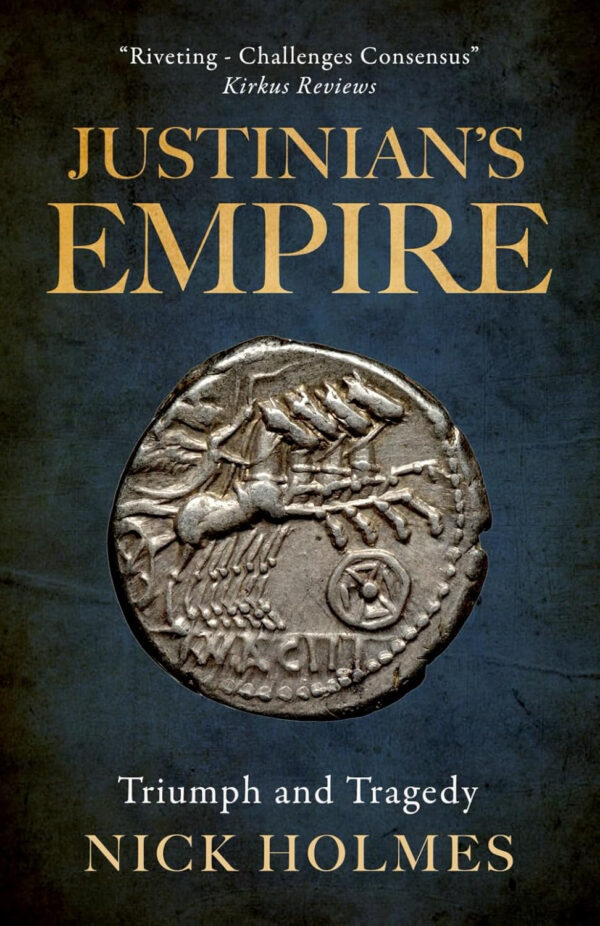


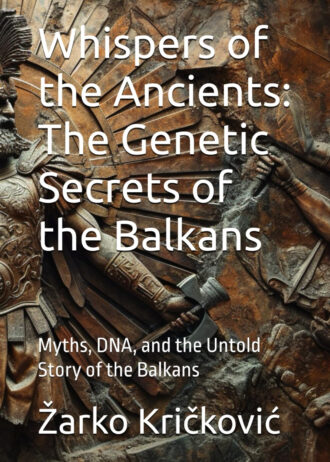
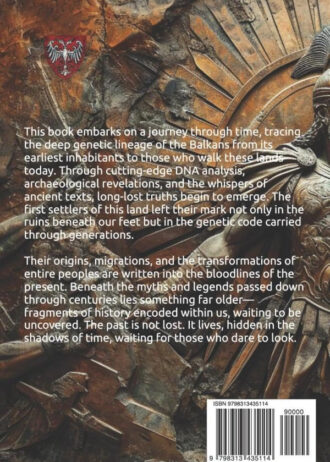
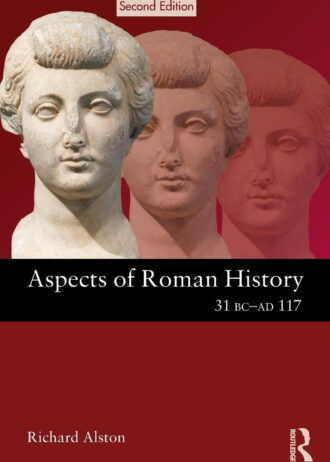
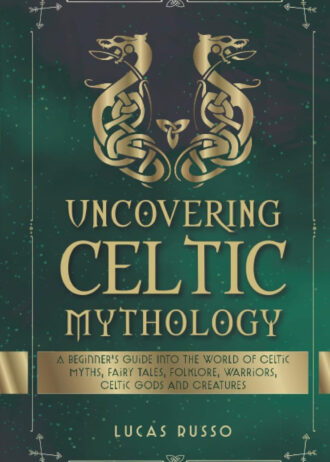
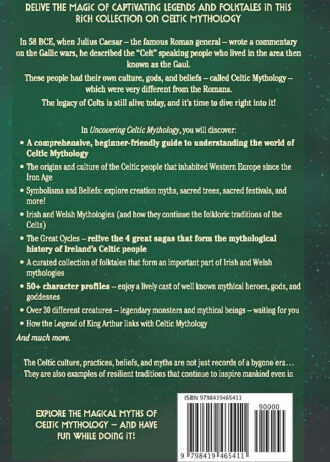
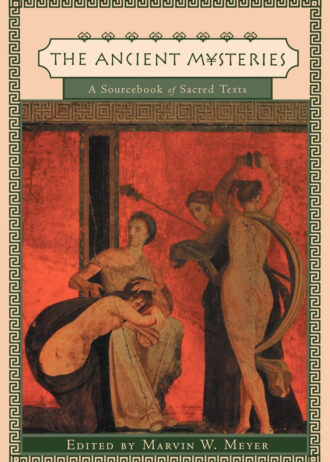
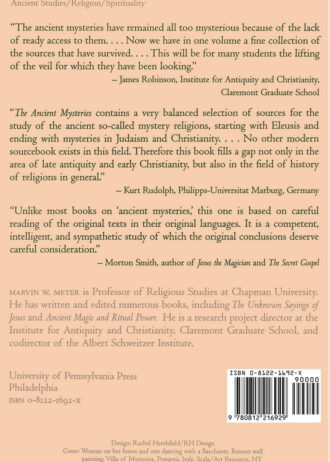
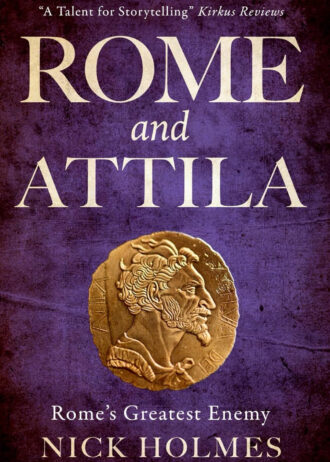
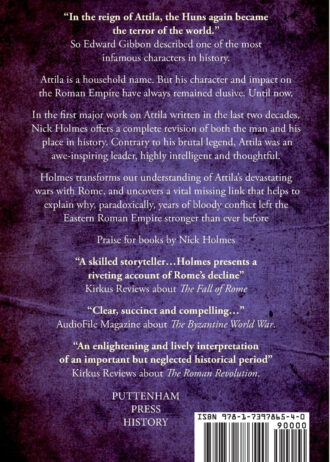
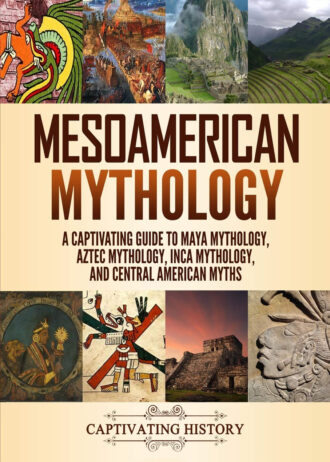
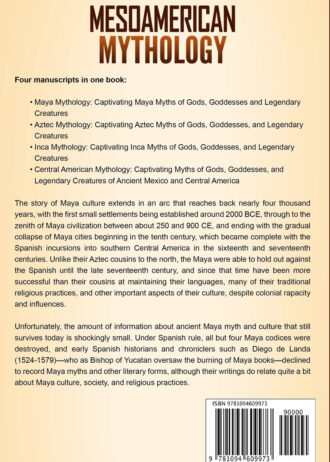
Andy Woods –
As someone who has a significant interest in Roman history and possesses an insatiable passion for the subject. This series of books by the wonderful, Nick Holmes have been both refreshing and illuminating. I’ve read countless books on Rome from the time of the Republic through to the 2nd century. Yet I’ve always had a fascination and been intrigued by the Eastern Roman Empire and the Fall of the West. The first book which focused primarily on the Crisis of the Third Century was a tumultuous period in Roman history, and one that I had been desperately seeking a book on. Unfortunately, the options for books on the latter part of the Roman Empire (West) is lacking, and extremely sparse regarding the East.I’ve devoured each one of these books. The prose is so captivating and exciting. At no point in reading the four books in this terrific series was I ever bored. The way Nick Holmes presents the events of the period is as engaging and as much of a page turner as any good novel. I am very interested in the recent theories of climate change’s impact on the Empire that Nick presents throughout his books for example. Along with the socio-economic impact of these theories.I’ve read numerous books by excellent historians on Rome, but Nick Holmes has become my favorite author on the subject. After finishing Justinian’s’ Empire, I am already eagerly anticipating the next book in the series. I’d recommend this to absolutely anyone with an interest in the Roman Empire. There are so many important people who have been neglected by history that have their incredible stories told. Not to mention that Belisarius finally gets the credit he duly deserves for the extraordinary general he was. His name should be spoken in the same breath as Julius Caesar, Vespasian, Marcus Agrippa, Fabius and Scipio Africanus.
Matthew Worrall –
Well written and masterfully researched. Couldn’t put it down.